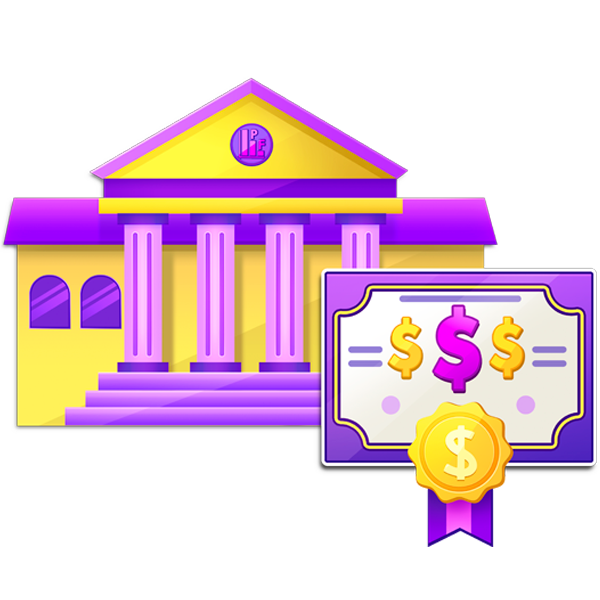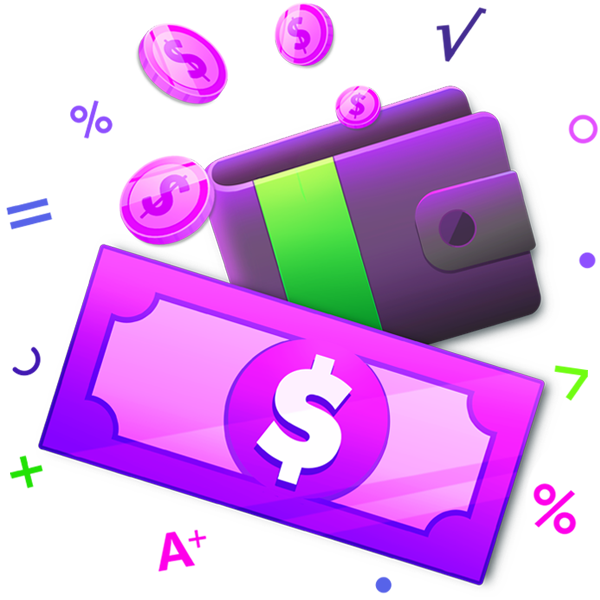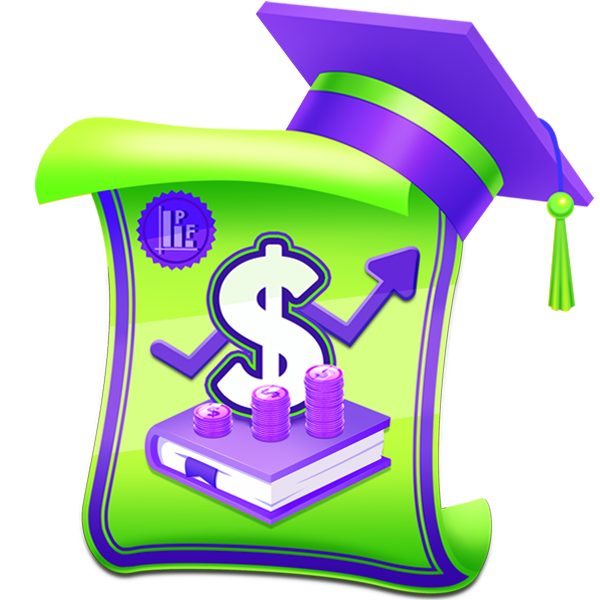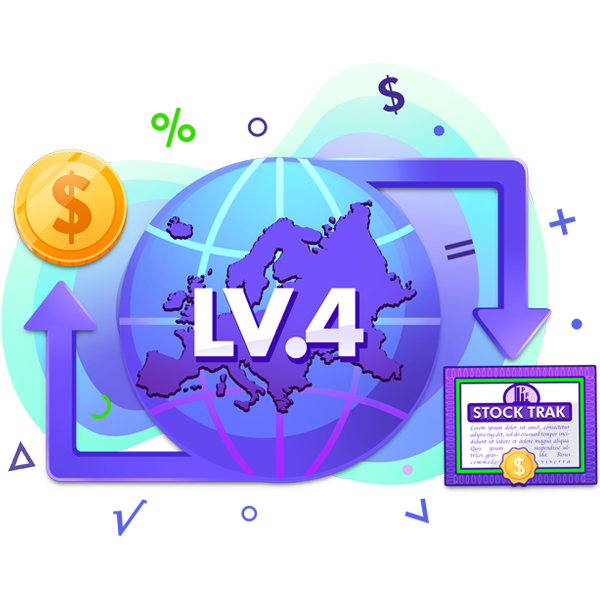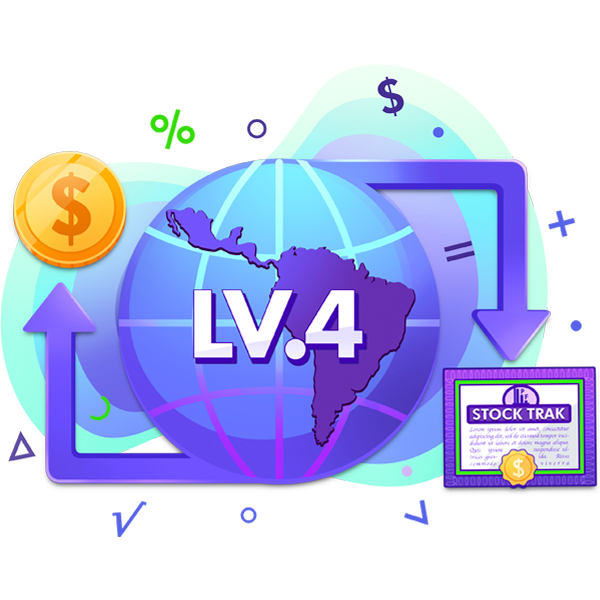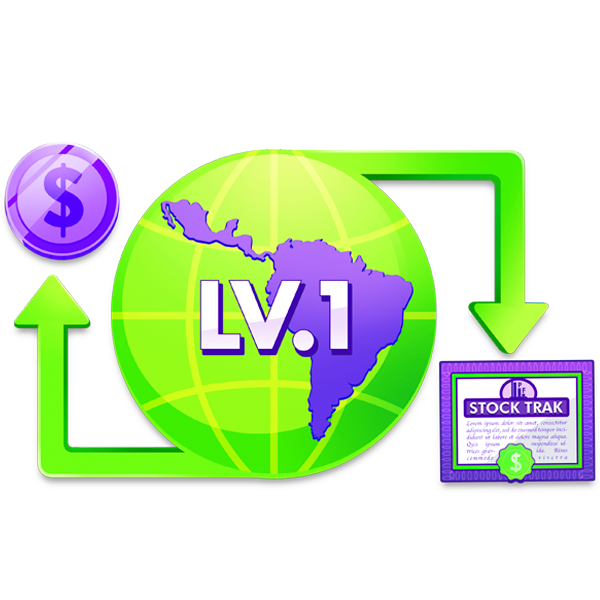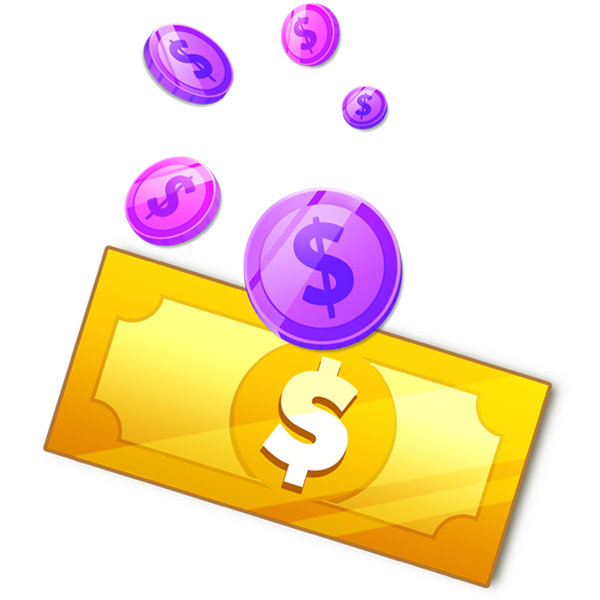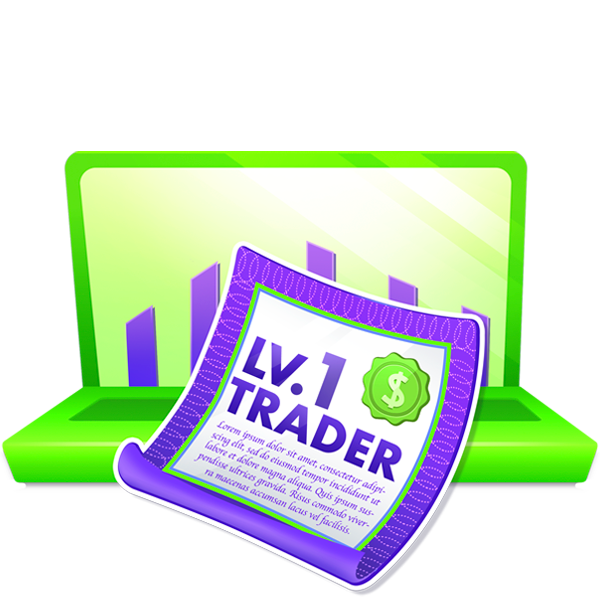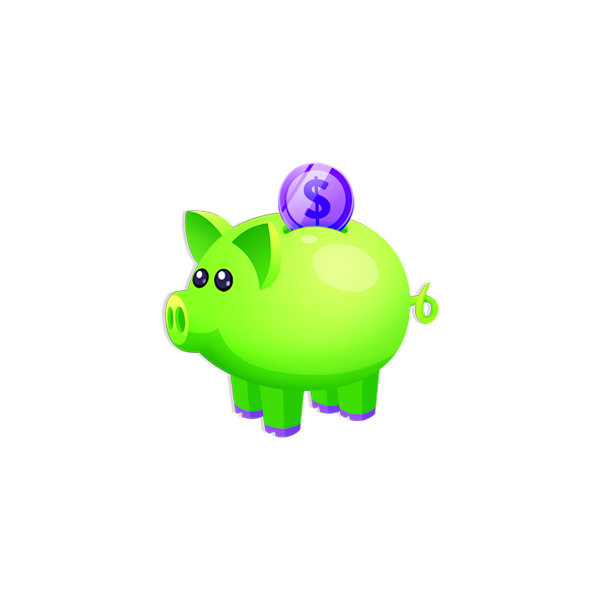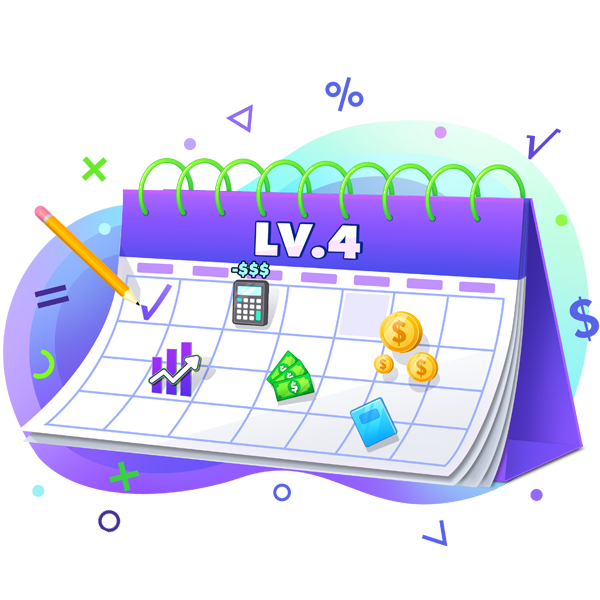Costs The total amount of resources required for a business to operate and produce valuable output.
Cost Of Goods Sold (COGS) The cost to produce a given unit of output for a business. This can be a mix of direct and indirect costs.
Cost Allocations An accounting concept of how to divide the costs of doing business across different categories to calculate profit, particularly direct vs indirect costs.
Corporation A type of company that is organized with shareholders and a board of directors.
Corporate Debt Loans taken out by businesses, usually to fund growth. This can either be in the form of loans from banks, or by issuing corporate bonds. Related Lessons
Corporate Culture The interior atmosphere of a company and how they do business. The corporate culture defines the day-to-day life of their employees and general attitude of their management team.
Corporate Bond A formal debt instrument issued by a company to raise money. Corporate bonds are typically issued in denominations of $1000 and pay out a fixed interest payment at regular intervals. At the expiration of the bond, the final interest payment is made, plus the original $1000 returned. Click Here for our lesson on Read More…
Co-Payment A concept in insurance where the insured person would make a small payment (usually a fixed dollar amount) for a service, with the remainder of the total cost covered by the insurance company.
Contractor A person or business hired by another person or business as a vendor who provides a specific good or service over a specific period of time. This does not grant the same rights and privileges as a full employee but does grant greater independence. Click Here for our lesson on Employer and Employee Rights Read More…
Contract A legal document that binds to or more parties together to exchange some good, services, and payment (known as “consideration”). Click Here for our lesson on Contracts
Consumerism A concept as part of a market economy where the consumers or purchasers of goods and services are the primary drivers of the economy and have certain expectations to make reasonable decisions. Related Lessons
Consumer Surplus An economic concept that measures the total value of goods or services that are purchased by consumers at a price below the maximum price they would have been willing to pay.
Consumer Price Index (CPI) A method to measure inflation, which is based on taking a “basket” of goods and comparing its prices over time. Click Here for our lesson on Major Economic Indicators
Consumer Finance Protection Bureau A formal agency of the US government that focuses on consumer protections in finance.
Consideration The payment or reward, an essential part of a contract. To make a legally binding contract, both parties must exchange something, called consideration. If one party just agrees to give something to the other party, this would be a gift and is not legally enforceable.
Consensus Estimate The average of all professionally issued earnings estimates for a company. This is “Wall Street’s Best Guess” of what a company will announce in the next quarter’s earnings call.
Comprehensive Coverage (Car Insurance) A premium type of car insurance that includes liability and collision coverage, plus additional coverage for other types of damage (for example, if you simply damage your car by hitting a pole). Click Here for our lesson on Car Insurance
The Magic of Compound Interest Compound Interest is one of the most important concepts in the modern world, and a cornerstone of the financial system in every economy. The concept of “Compound Interest” is surprisingly simple, but incredibly powerful! Simple Interest Before we talk about the power of Compound Interest, we first need to understand Read More…
Competitive Advantage An advantage of one company over another’s in one aspect of operations or production. Companies in competition with each other try to improve their own competitive advantages and reduce the advantages held by other companies.
Competition A feature of a market economy where multiple producers of a similar good or service compete for customers and businesses. This usually results in lower prices and more innovation than systems where there is only one producer.
Comparative Advantage An advantage one country or economy has over another in terms of the production of one type of good or raw material. By exploiting comparative advantages and engaging in trade, multiple countries can increase their total wealth compared to trying to produce everything themselves.
Company A for-profit business. A company can be organized as a sole proprietorship (owned by one person), partnership (owned by a handful of people), or corporation (which sells stock to many small owners).
Communism A type of command economy based in principle on common ownership of all assets in a country, with resource allocation determined by a central planning agency.
Common Stock The most frequently traded stock that is accessible to individual investors. This type of stock has voting rights for some important management decisions for the company. While it also is eligible for dividends, it is paid only after preferred stock. Click Here for our lesson on Stocks
Commodity ETF An exchange traded fund invested in a specific commodity, and companies that produce these commodities. This is a mechanism for which an investor that can only trade stocks and ETFs can add commodities to their portfolio.
Commodity A fundamental input of production, which generally is of the same quality wherever it comes from. This can include things like lumber, crude oil, refined copper, cattle, and many other raw inputs.
Commissions A transaction cost charged by many brokerages in exchange for executing a trade. Commissions can be a flat fee per trade, a fee per share traded, or a percent value of the total transaction amount.
Commercial Paper A type of short-term corporate bond issued by a corporation to cover immediate cash flow needs. Commercial paper usually is paid off within a number of months. Click Here for our lesson on Bonds
Commercial Loan A type of loan issued from a bank to a business to finance growth. These are most common with small to medium sized businesses. Click Here for our lesson on Corporate Debt
Command Economy An economic system that bases production based on directions from a central planning agency, rather than market forces and prices.
Collision Coverage A type of auto insurance that covers damage to the insured vehicle in case of a crash. This is more expensive than liability coverage, which only covers the damage to the other person’s vehicle. Click Here for our lesson on Car Insurance
Collateral An asset that is used to secure a loan. If the loan goes into default (meaning it is not being paid on time), the person or company who issued the loan can seize the asset and sell it to satisfy the debt. Related Lessons
Co-Insurance A percentage of the cost of covering an expense that is paid by the insured person. This is most common in health insurance, where after the deductible is fully paid the insured person will still pay some amount (typically 20%) of the healthcare costs until their out-of-pocket maximum. Click Here for our lesson on Read More…
Closing Costs The fees incurred as part of closing a loan, typically a mortgage. This can include legal fees and recorder fees. Depending on the type of loan, this can be a considerable addition to the total cost of the loan. Click Here for our lesson on Mortgages
Classes Of Stock Types of stock offered by a company to raise money for growth. Common Stock is the most frequent and is what is purchased by individual investors. This gives voting rights for some important management decisions. Preferred Stock is usually held by the company’s original management team and has preference for dividends. However, Read More…
Children’s Health Insurance Program (CHIP) A federally sponsored health insurance program for children, specifically for families that earn too much money to qualify for Medicaid. Click Here for our lesson on Health Insurance
Chicago Mercantile Exchange (CME) A securities exchange based in Chicago that trades in commodities and futures contracts.
Chicago Board Options Exchange (CBOE) A securities exchange based in Chicago that focuses exclusively on option contracts. Click Here for the Investing101 Chapter on an Introduction to Options (30 min)
Checks A document used to provide authorization to transfer money out of one’s checking account to some other bank account. It includes the account to be transferred from, the amount to be transferred, the name of the person or company to transfer to, and a signature for authorization.
Checking Account A type of bank account used for ease of making transactions. Checking accounts are “demand deposits”, designed for frequent deposits and withdrawals. Related Lessons
Check Clearing The act of a system of banks to transfer funds from one account to another based on the instructions on a check.
Charles Schwab The first “Discount Broker” that focused on providing no-frills, low-cost stock investing brokerage accounts for individual investors.
Charity A non-profit organization or religious group with an operating goal of some societal good, not earning profits and growth. Click Here for our lesson on Charity
Charitable Giving The act of giving away money or assets to non-profit charitable organizations or religious groups. Click Here for our lesson on Charity
Chapter 7 Bankruptcy A type of bankruptcy where your assets and income are taken over by a trustee, who sells off some assets and garnishes some income to pay off your debts. After as much of the debt as possible is paid, the remainder is discharged. Related Lessons
Chapter 13 Bankruptcy A type of bankruptcy where your assets are not sold off. Instead, you must create a payment plan approved by a court, and for several years all income is seized to enforce the payment plan. Related Lessons
Day’s Change The amount a stock’s price changes from the previous day’s closing price. Related Lessons
Certified Public Accountant (CPA) A professional designation for accountants showing a high level of expertise and ethical training. A CPA designation is required to create financial statements accepted by investors. Click Here for our lesson on Certifications in the Finance Industry
Certified Financial Planner (CFP) A professional certification that allows the certified person to legally give investment and wealth management advice and planning services. Click Here for our lesson on Certifications in the Finance Industry
Chartered Financial Analyst (CFA) A professional certification offered by the CFA institute that focuses on advanced investment analysis. Click Here for our lesson on Certifications in the Finance Industry
Certificate Of Deposit A type of investment issued by a bank, similar to a savings account. The bank pays a higher interest rate than a savings account, but the depositor typically cannot withdraw until a set expiration date.
Centralized Management A management style that focuses all decision making in a small group of upper management, with the rest of the organization executing the plans made at the top.
Catch A Falling Knife The concept stating that investors must be wary when trying to “buy low” and should wait until a stock’s price and stops falling before “buying in”. Related Lessons
Cash Flow Statement A fundamental financial statement showing the flow of cash in and out of a company over a specified time frame. Click Here for our lesson on Cash Flow Statements
Cash Basis Accounting A method of accounting based only on when cash transactions occur, regardless of when it was “earned”. For example, if you conduct some work in January but are only paid in February, you will recognize the transaction in February.
Cash Advance The action of converting your credit card’s line of credit into cash. Unlike most types of credit card purchases, cash advances usually start accumulating interest immediately, instead of after a grace period. Click Here for our lesson on Credit Cards
Cash This can refer to actual physical currency (like dollar bills and coins), but also on-demand bank deposits that can be immediately spent.
Cartel An arrangement between several companies to coordinate their pricing and market strategies for their mutual benefit. The formation of cartels is typically illegal in capitalist economies.
Career Plan An action plan to build one’s career. This usually includes identifying a long-term goal (such as a dream job), and a series of milestones one would need to achieve to get there.
Career The road a person takes through their professional life. This includes both the actual jobs held, but also education and other training you acquire.
Card Verification Value (CVV) A security feature on both credit and debit cards. This is an extra 3- or 4-numbers on the back on a credit card that must be entered for most types of online purchases as an additional verification mechanism. Related Lessons
CARD Act The Credit Card Accountability Responsibility and Disclosure Act. This law introduced a number of consumer protections specific to credit cards, such as increasing interest rates with no notice, excessive fees, and confusing billing cycles. It also restricts credit cards for people under 21. Click Here for our lesson on Credit Cards
Car Loan A type of amortized loan used to purchase a vehicle. Compared to a mortgage, the loan term is typically much shorter, and interest rates higher. Related Lessons
Car Insurance A type of insurance covering cars. It includes, at minimum, liability insurance in case you cause damage to another person, property, or vehicle, but can also include additional coverage to protect you from damage caused by others. Click Here for our lesson on Car Insurance
Capitalism An economic system based on a market economy and an emphasis on continuous re-investment of profits in future growth.
Capital Property Rights The legal protection of investments and other assets from government seizure. Strong capital property rights are necessary to encourage investment, as people are unlikely to invest if they fear government seizure.
Capital Preservation The concept that an investor should be principally concerned with not losing their initial investment, more than chasing gains.
Capital Investment The purchase of an asset with an aim for growth. This usually involves purchasing stock in a company.
Capital Gains Tax A type of income tax charged on the realized gains from the sale of an asset, like a stock. Capital Gains taxes typically have one rate for short-term gains (earned in less than 1 year) and long-term gains (realized gains longer than 1 year). Related Lessons
Capital Asset Pricing Model (CAPM) A mathematical model that uses different measures of risk versus reward to determine whether an asset (like a stock) is a good addition to a given diversified portfolio. Click Here for our lesson on Building an Investing Strategy
Capital A type of asset that is used to generate economic activity. This can both refer to the specific assets, such as a machine at a factory, or funds raised by a company to purchase these assets to fund growth (“Seed Capital”).
Call Option A contract that gives the buyer the right, but not obligation, to buy a stock at a specific price at any time before the specified expiration date. Click Here for the Investing101 Chapter on an Introduction to Options (30 min)
Call Interest The general interest of investors to purchase call options on a stock. This is generally a measure of market sentiment on how many investors are currently interested in these options. Click Here for the Investing101 Chapter on an Introduction to Options (30 min)
Buy What You Know An investment strategy championed by Peter Lynch that says that an investor should start by exploring companies that they are already familiar with and can see are successful a “street level”.
Buy Now, Pay Later A financing option where the purchaser buys an item immediately, and pays it off with monthly installments, usually over 4 months.
Buy And Hold An investing strategy that focuses on buying stocks or other securities with no intention to sell. This is the investing strategy championed by Warren Buffett. Click Here for our lesson on Building an Investing Strategy
Business Plan A document prepared by a business explaining what their business aims to achieve, their mission statement, short-term and long-term goals, and how they plan to achieve them.
Business Incubator A for-profit or non-profit organization that aims to provide resources and support for start-up business enterprises, typically including shared accounting resources and office space, and expert mentorship on business planning, market strategy, and administration.
Business Cycle The cycle of expansion and recession of the economy over time. Business cycles consist of a period of optimism and growth (expansion) followed by a period of uncertainty and stagnation (recession).
Burrito A type of meal originating in Mexico, including any combination of rice, beans, meats, and vegetables wrapped in a tortilla.
Bureaucratic Management A management style that focuses on success through clear organizational structure, well-defined roles, and refinements to workflow processes.
Bureau Of Labor Statistics A government agency in the United States that compiles important statistics on the labor force. The BLS is one of the organizations that publishes key economic indicators used to measure the health of the economy.
Bull Market A period of general market optimism, typically marked by a general increase in stock prices. Related Lessons
Budgeting Strategy A plan created by an individual or business in how they build their budget. A budgeting strategy ensures that the budget is working to reach a larger financial goal, such as “pay yourself first” to build savings and wealth, or to focus on paying off debt faster to escape costly financing charges. Related Read More…
Budget A financial planning document outlining what income will be received, what bills and other expenses will need to be paid, and what savings goals can be reached over a specified timeframe, typically per month. Related Lessons
Bubble An act where the general prices in an industry or entire market become inflated beyond their rational value due to too many investors rushing in all at once. Bubbles are typically followed by a crash, once investors start to see the bubble being formed and try to pull their money out all at once.
Brokerage Account An account held at a brokerage firm where an investor deposits cash or other investments and can purchase securities from a securities exchange. The brokerage account also holds these securities while the investor owns them as a custodian (instead of mailing individual stock certificates to each investor for every trade). Click Here for Read More…
Brokerage A company consisting of one or several stock brokers and maintain individual investor’s brokerage accounts to facilitate trading of securities. Click Here for our lesson on What is a Brokerage?
Broker A custodial agent that acts as a go-between for parties who wish to make a transaction. For stock market investing, a broker is the person who acts as the go-between from an individual investor and the stock exchanges themselves.
Breakout A term in technical analysis where a security’s price exists some established support and resistance lines. Breakouts can be positive (meaning the price starts increasing) or negative. A primary goal of technical analysis is to identify when breakouts are likely to happen, and whether they will be positive or negative.
Break Even The price point where an investor is neither earning a profit nor loss.
Branding The marketing exercise of a company to establish a recognizable presence between themselves and their end customers. Branding helps differentiate companies from their competition.
Bottom Line The last line of an income statement, showing a company’s net profit or loss for the time period covered by this financial statement, typically quarterly or yearly.
Bond Expiration The date at which a bond expires, and the company or government who issued the bonds must pay back the original amount borrowed, typically $1000 per bond. Click Here for our lesson on Bonds
Bonds A type of loan where a bank, company, or government sells its debt to individual investors in exchange for regular interest payments. Bonds are typically denominated in $1000, and pay interest monthly, annually, quarterly, or semi-annually. At the expiration of the bond, the original loan amount is also paid back. Click Here for our Read More…
Blue Sky Laws State-level laws in the United States regulating the securities industry. In particular, Blue-Sky laws emphasize transparency from companies that seek public investments in order to prevent fraud.
Blue Chip An extremely large and stable publicly traded corporation with a reputation for reliability. These are typically the largest companies in a country.
Black-Scholes Model An options pricing model based on underlying factors, such as the option’s price, time until expiration, and volatility. While an option’s actual trading price is determined by bid and ask prices of investors, this model is used to identify what the “fair” price of an option theoretically should be. Click Here for the Read More…
Black Thursday October 24, 1929. This was the day when the Great Depression is largely considered to have begun, when the stock markets entered a panic with investors entering a period of heavy selling.
Bills Payable statements sent to an individual or business for goods or services that have been rendered. Bills have a due date, the latest date at which the bill can be paid in order to remain in good standing with this vendor.



